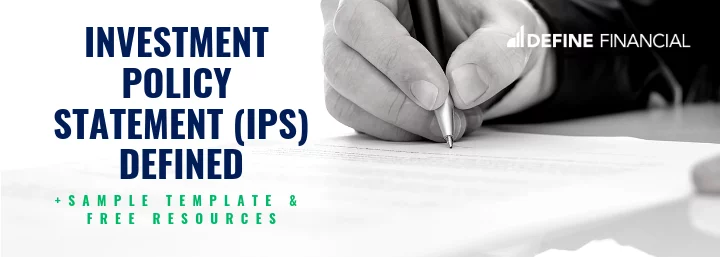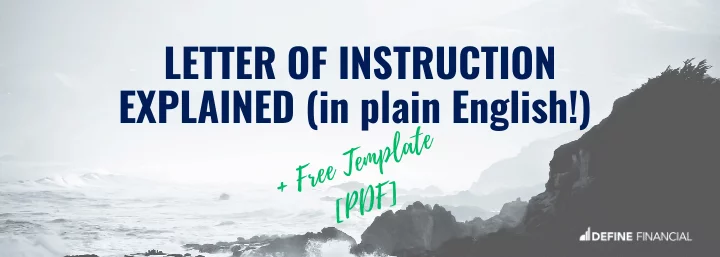
In this article, I’m sharing step-by-step how to freeze your credit. I’m also answering common questions such as:
- What is a credit freeze
- Why freeze your credit
- How do you unfreeze your credit
With data breaches and identity theft rising, everyone must learn how to tackle this important task.
This guide contains everything you need to know about freezing your credit in 2025.
Let’s dive in!
Key Takeaways
- A credit freeze safeguards your financial information by restricting access to your credit report.
- Freezing your credit is a user-friendly process that is done through the three major credit bureaus.
- Unfreezing your credit is necessary when you want to apply for new loans or credit, and it’s easily reversible.
What Is a Credit Freeze
A credit freeze is a process that helps you protect your personal information by restricting access to your credit reports. When you freeze your credit, the credit bureaus (e.g., Equifax, Experian, and TransUnion) lock your credit file, preventing identity thieves from opening new accounts or taking out loans in your name.
You can place a freeze with each credit bureau—also known as consumer reporting agencies—online, by phone, or by mail.
Remember that once your credit is frozen, you’ll need to unfreeze it (temporarily) to apply for new credit or loans. This is an easy process that can be done through the credit bureau’s app, website, or by phone.
It’s important to note that a credit freeze does not affect your current accounts or directly impact your credit score.
A credit freeze simply adds an extra layer of security and prevents new accounts from being opened without your consent.
You can still use your credit cards and maintain existing loans with frozen credit.
In summary, freezing your credit allows you to take control of your credit report, protect yourself against identity theft, and ensure that your sensitive financial information stays secure.
Why Freeze Your Credit
Freezing your credit is an effective way to protect yourself from identity theft and credit fraud. When you place a freeze on your credit report, it prevents a fraudster from opening new accounts (or loans) in your name, as creditors cannot access your report.
Tackling this important task should give you extra peace of mind, especially in case of a data breach or if you suspect your personal information has been compromised.
One of the main advantages of freezing your credit is that it’s free, making it an affordable solution for protecting your personal information.
Plus, you can lift the freeze whenever you want to apply for new credit and then reinstate it when you’re done. This gives you control over who can access your credit report while maintaining the flexibility you need for legitimate loan applications.
How to Freeze Your Credit
Now that I’ve (hopefully) convinced you this task is important, you’re likely wondering how to freeze your credit and take action.
To freeze your credit, you need to make the request with each of the three major credit bureaus—TransUnion, Equifax, and Experian.
The easiest way to process a credit freeze is through each agency’s website. However, you can also freeze it by phone or mail.
Freezing Your Credit (3-Step Process):
- Sign up for FREE credit monitoring. A free credit monitoring service like Credit Karma (or one provided by your bank) allows you to monitor your credit report and scores. You may not be able to sign up for credit monitoring once your credit is frozen, so be sure to tackle this first.
- Contact and request your credit freeze with each bureau. While you can do this by phone or mail, processing it on each of their websites is easiest. If you have minor children, you’ll also want to help them freeze their credit.
- Securely store the credentials generated when you froze your credit. For example, if you froze your credit by phone, you will have created a unique PIN. If you froze your credit online, you will have chosen a username and password. These credentials will be required to unfreeze your credit in the future, so consider adding them to your Letter of Instruction and a password manager like Dashlane or LastPass.
When placing a credit freeze request, the reporting agencies are required to lock your credit report within one business day if it’s done online or by phone and within three business days if it’s done by mail.
You’ll receive confirmation from each bureau, providing you with the details of the freeze and your unique PIN (if done by phone).
Credit Bureaus Contact
To help you follow the steps above and freeze your credit, the contact information for each reporting agency is below.
| Bureau | Website | Phone | Address |
|---|---|---|---|
| Equifax | Equifax Credit Freeze | 1-888-378-4329 | P.O. Box 105788, Atlanta, GA 30348 |
| TransUnion | TransUnion Credit Freeze | 1-800-916-8800 | P.O. Box 160, Woodlyn, PA 19094 |
| Experian | Experian Credit Freeze | 1-888-397-3742 | P.O. Box 9554, Allen, TX 75013 |
Required Personal Information
Make sure to have the following personal information ready when requesting a credit freeze:
- Full Name
- Social Security Number
- Date of Birth
- Address (current and previous, if you have moved in the past two years)
It’s also possible that they will ask about prior loans and credit accounts. While providing sensitive information may feel nerve-racking, credit bureaus must be certain that you are who you say you are.
What Does it Cost to Freeze Your Credit?
Thanks to the Fair Credit Reporting Act in 2018, the cost to freeze and unfreeze your credit in the United States is FREE. There aren’t many critical financial planning tasks that are free, easy, and quick to tackle.
How to Unfreeze Your Credit
Like freezing your credit, you can unfreeze your credit online, by phone, or by mail. If you unfreeze it online, the change will be instant.
To unfreeze your credit, you must know what credit bureau the lender is attempting to pull your credit from.
For example, if you’re applying for an auto loan, the dealer might say they need to access your credit report from Equifax. In that case, you would go directly to Equifax and temporarily unfreeze your credit through the contact method of your choice.
(Note: Depending on your chosen option, you may need to have your Personal Identification Number (PIN) available to complete the unfreezing process.)
To help you quickly unfreeze your credit, the contact information and direct links for online access to each reporting agency are below.
| Bureau | Mobile App | Website | Phone |
|---|---|---|---|
| Equifax | Equifax App (iPhone or Android) | Equifax Credit Freeze | 1-888-378-4329 |
| Experian | Experian App | Experian Credit Freeze | 1-888-397-3742 |
| TransUnion | TransUnion App (iPhone or Android) | TransUnion Credit Freeze | 1-800-916-8800 |
Unfreezing your credit is not permanent. When you unfreeze your credit, you will be asked how long you want it unfrozen. You can choose one day or more, depending on your preference or the time the creditor needs.
Of course, a shorter time frame limits your risk exposure.
In summary, unfreezing your credit with the desired bureau is simple, quick, and straightforward. By following the steps mentioned above, you can confidently and securely unfreeze your credit when required.
Implications of Freezing Credit
While freezing your credit is important for just about everyone, there are a few implications for you to consider.
First, freezing your credit can cause delays when you need to apply for new credit cards, loans, or other forms of credit. This is because you must temporarily lift the freeze to allow creditors to access your report.
Second, although freezing your credit provides an extra layer of security, you will still need to monitor your existing credit card activity and outstanding loans. A frozen credit report does not protect you from fraudulent activities on existing accounts.
Lastly, freezing your credit does not directly affect your credit score. However, it can impact your ability to apply for new forms of credit. And since the age of your accounts and the diversity of credit types are factors that determine your credit score, frozen credit could indirectly influence your credit score over time.
Weighing the benefits and limitations of freezing your credit is crucial to deciding if it’s right for you. While a credit freeze can protect you from identity theft and unauthorized credit inquiries, it may also impede your ability to obtain new credit quickly when necessary.
Freezing a Minor’s Credit
As a parent or guardian, you may want to consider freezing your minor child’s credit to protect them from identity theft and credit fraud.
While minors under 18 typically do not have credit reports, cybercriminals can still use their personal information to open fraudulent accounts. By freezing their credit, you limit access to their credit reports and prevent unauthorized individuals from opening accounts in their name.
To request a security freeze for your minor child, you must contact each of the three major credit bureaus—Equifax, Experian, and TransUnion. Unfortunately, requesting a security freeze for a minor must be done through the mail.
While each bureau may require different documentation, you will typically need to provide the following:
- Proof of your child’s identity. (e.g., Their birth certificate or Social Security card.)
- Proof of your identity and relation to the child. (e.g., Your driver’s license and the child’s birth certificate.)
- Proof of your authority to act on the child’s behalf. (e.g., A court order or legal guardianship documents.)
It usually takes around three business days for the freeze to be added to the minor’s credit file after receiving the request.
To unfreeze your child’s credit in the future, you must contact each credit reporting agency separately. This step may need to be done as your child becomes an adult or if they need to access their credit report for any reason, such as applying for a student loan or credit card.
By being proactive and freezing your child’s credit, you are taking an important step towards safeguarding your minor’s financial future and personal information from potential identity theft and fraud.
Special Considerations for Victims of Identity Theft
If you are a victim of identity theft, in addition to freezing your credit, consider placing a fraud alert on your credit report.
A fraud alert is a notification to creditors to take additional steps to verify your identity when they receive a request for new credit or changes to existing accounts.
Two types of fraud alerts are available:
- Initial fraud alerts. An initial fraud alert is free, lasts one year, and can be easily renewed.
- Extended fraud alerts. An extended fraud is also free and lasts seven years. However, you must file an FTC Identify Theft Report or police report.
To place a fraud alert, you only need to contact one of the three credit bureaus (Equifax, Experian, or TransUnion), as they are obligated to inform the others once they receive your request.
Being a victim of identity theft can be a stressful experience, but taking these proactive steps can limit potential damage and help you regain control of your financial security.
Credit Freeze Vs. Credit Lock
When it comes to protecting your credit, you may have heard about credit freezes and credit locks. These two options help prevent new credit accounts from being opened in your name, but they have some key differences.
A credit freeze is a legal tool that prevents unauthorized access to your credit reports. With a credit freeze in place, potential lenders and creditors cannot view your credit report, making it difficult for identity thieves to open new accounts in your name. To request a credit freeze, you must contact each of the three major credit reporting bureaus (Equifax, Experian, and TransUnion). Credit freezes are free to initiate, and you can lift the freeze whenever you need to apply for new credit.
On the other hand, a credit lock is a feature offered by some credit monitoring services, like Experian CreditLock. It works similarly to a credit freeze, restricting access to your credit reports. However, a credit lock is generally quicker and easier to manage, as you can lock or unlock your credit report with a few taps on a mobile app or website. Unlike credit freezes, credit locks may come with a monthly fee as they are usually part of a credit monitoring service package.
Consider your needs and preferences to decide between a credit freeze and a credit lock. A credit freeze may be the better choice if you prioritize legal protection and budget-friendliness. However, a credit lock may be the right solution if you value convenience and additional credit monitoring features. Always be diligent in protecting your personal information and reviewing your credit reports to ensure accuracy.
Interactions with Other Entities
If you decide to freeze your credit, the following examples explain how this decision impacts your interactions with other entities.
Lenders and credit card issuers primarily use your credit report to determine your creditworthiness. When your credit is frozen, they cannot access your report, which may make it difficult for you to open new credit accounts or apply for loans. Ensure you lift the freeze before applying for new credit or loans, allowing these institutions to review your credit history.
Landlords and rental agencies often check prospective tenant’s credit reports to assess the risk of leasing property to them. With a frozen credit report, you may need to temporarily unfreeze your credit to allow them access or use alternative methods of demonstrating your financial reliability.
Potential employers in certain industries may require a credit check during the hiring process. In this case, a frozen credit report might delay or impede your job prospects. Be prepared to lift the freeze temporarily or discuss the need for a credit check with your potential employer.
Government agents and debt collectors may also need access to your credit report to verify your identity or determine your financial situation. When dealing with these entities, be aware that having a frozen credit report could impact the process or require further documentation.
Court orders may also require access to your credit report in specific legal situations. Complying with such orders might necessitate lifting the freeze to ensure proper judicial procedures are followed.
By understanding the implications of freezing your credit and how it affects interactions with different entities, you can make informed decisions about when to lift the freeze or use alternative methods to verify your creditworthiness.
Frequently Asked Questions
How do I freeze my credit with all three bureaus?
To freeze your credit with all three credit bureaus, you must contact Equifax, Experian, and TransUnion individually. You can request the freeze online, by phone, or through mail. Keep in mind that each bureau has its own process and contact information. Here are the links to each bureau for more details: Equifax, Experian, and TransUnion.
Is freezing your credit a good idea?
Freezing your credit can be a good idea if you are concerned about identity theft or unauthorized access to your credit. It prevents most companies from viewing your credit report, making it difficult for fraudsters to open new accounts in your name.
Can freezing your credit hurt your credit score?
Freezing your credit does not hurt your credit score. Freezing your credit simply restricts access to your credit report, which means potential lenders and creditors cannot evaluate your creditworthiness. As a result, they cannot extend new credit to anyone using your identity.
It’s important to understand that your credit scores may still change while your credit is frozen. Factors like your payment history, credit utilization, and length of credit history will continue to affect your credit scores, so continue to practice good financial habits. You can still check your credit scores and request your free annual credit report even when a freeze is in place. Additionally, existing creditors and debt collectors can still access your credit report as needed.
What’s the difference between a credit freeze and a credit lock?
A credit freeze is a legal provision that restricts access to your credit report, while a credit lock is a service provided by credit bureaus that can be turned on and off with more ease than a credit freeze. Both freeze and lock can prevent unauthorized access to your credit, but credit freezes have more legal protections than credit locks.
How do I unfreeze my credit?
To unfreeze your credit, you need to contact each credit bureau individually and request a lift on the freeze. Unfreezing can be done online, by phone, or by mail. If you unfreeze it by phone, be sure to have your personal identification number (PIN) ready to complete the process successfully.
Do I need to freeze my credit with all three bureaus?
Yes, it is essential to freeze your credit with all three credit bureaus, as they operate independently, and freezing your credit with only one bureau may not effectively protect you from identity theft.


